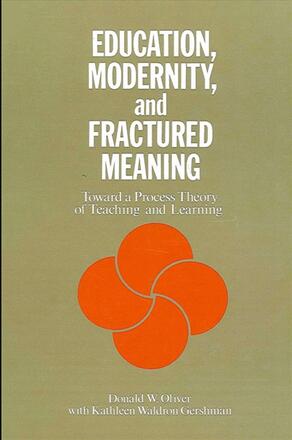
Education, Modernity, and Fractured Meaning
Toward A Process Theory of Teaching and Learning
Alternative formats available from:
Description
An indictment of the ideology of modernity, which has resulted in our leading incoherent and fragmented lives, Oliver and Gershman's book explores the profound paradigmatic differences that exist among the world's people and describes a rich theory of knowing and being, commonly called "process philosophy. " The promise of process philosophy is in its potential to allow us to participate more fully in the flow of all of time and nature. But what does it mean for a teacher and student in the learning situation to have a process point of view? The authors also discuss many of the various implications in regard to language, space, power relationships, and time as they place process philosophy in the educational context.
Reviews
". ..A splendid contribution to philosophy of education, a book with revolutionary implications. The book identifies a pervasive problem with most contemporary education: its discrete functionalism deriving from the philosophy and culture of modernity. Rather than engage in a dialectical negation of modernity, as so-called 'post-modern' thinkers do, it proposes and fleshes out an independent alternative—process education. " — Robert Cummings Neville
"It is motivated by a desire to nurture human community and is notably insightful, daring, and intriguing. " — Philip L. Smith